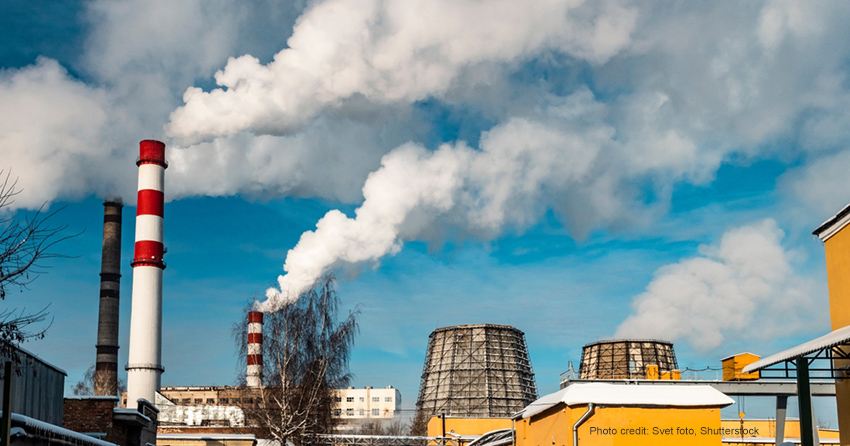
Dec 05, 2023 COP 28 – Running Out Of Time
The climate conference in Dubai in December 2023 is the 28th such Conference of Parties (i.e. COP 28). The first such conference was held in Berlin in 1995. But, as economist Jeffrey Sachs opines, the world’s governments do not have much to show for their work over the ensuing 28 years. In 1995, annual CO2 emissions amounted to 29 billion tonnes but have risen to 41 billion tonnes today (see country-by-country data and trends).
The rate of global warming has also increased. From 1970 to 2010, the earth warmed at a rate of 0.18°C per decade. Today, it is warming at 0.27°C per decade. At COP 21 in Paris in 2016, the world agreed to limit global warming to well below 2.0°C. As a result, climate disasters are intensifying. A fire on Maui earlier this year devastated the historic town of Lahaina and is reported to have killed over 100 people. Canadian wildfires in 2023 released 410 million tonnes of carbon into the atmosphere – approximately equivalent to all Mexican emissions for the year. Intensifying climate disasters have caused extensive damage, with an estimated $275 billion in costs in 2022.
Scientists raise alarm
In 2019, a report titled “Warning of a Climate Emergency” was signed by over 15,000 scientists from 163 countries. That report was recently updated in an article in Bioscience titled “The 2023 state of the climate report: Entering uncharted territory.” Professor William Ripple of Oregon State University, the first author of the updated report, notes that: –
“As scientists, we have been shocked by two things. First, after decades of warnings, we had hoped that humanity’s response to climate change would have been stronger, especially with regard to cutting fossil fuel emissions. Second, we are surprised by the frequency and severity of storms, floods, heat waves, and other climate-related disasters that we are now seeing.”
The Bioscience article includes charts tracking changes in 44 factors causing or resulting from climate change. None of the charts provide any cause for optimism regarding the future of our planet or its long-term ability to sustain humans. The authors note:
“[T]he effects of global warming are progressively more severe, and possibilities such as a worldwide societal breakdown are feasible and dangerously underexplored (Kemp et al., 2022). By the end of this century, an estimated 3 to 6 billion individuals—approximately one-third to one-half of the global population—might find themselves confined beyond the livable region, encountering severe heat, limited food availability, and elevated mortality rates because of the effects of climate change (Lenton et al., 2023).”
The Paris Agreement required a formal “Stocktake” of global progress (or its lack) on climate change every five years. COP28 in Dubai will be the first such Stocktake. Both Sachs and the Bioscience authors mention finance and justice topics. They note that the effects of climate change are not unfolding uniformly across the globe. They also note that the most impoverished individuals and communities have had the slightest impact on climate change but are disproportionately affected as the earth warms.
Global Financing to Address Climate Change
Sachs comments that if the rich countries were taxed $0.10 for each tonne of cumulative greenhouse gas emissions they have emitted, those taxes would generate $100 billion a year (the US would pay around $40 billion). Furthermore, if the rich countries were taxed at a rate of $4 per tonne for any new emissions, an additional annual $100 billion would be available. Sachs argues that “those who caused the climate crisis should help pay for those suffering but had little role in driving the problem” and that a global financing system to address climate change and its impacts is essential to transition to a renewable and just global energy future. Another possible positive outcome of the discussions in Dubai is the development of better early warning systems to alert countries and communities to the potential for catastrophic climate events.
————————————————————————————————————————–
A Novel Approach to Reporting on the Threat of Climate Change
Daily Maverick, an online news outlet, released a powerful anthem, recorded on a video, The Eve of Destruction, in October 2020 to present a fresh look at the threat of climate change. The song is a reworking of a 1965 protest song written by P.F. Sloan. The original song (which rose to the top of the pop music charts in several countries) referred to the Vietnam War, civil rights, Middle East tensions, and the threat of nuclear war. The new Daily Maverick version focuses on threats to the planet from climate change. The video is compelling, and a local South African singer, Anneli Kamfer, delivers a powerful rendition of the song.


